Creating the Perfect Astrological Story
December
Master’s Musings, September 2025
Creating the Perfect Astrological Story
Stories and metaphors build the bridge that connects you to your client’s heart. Without them, an astrological session can feel abstract and “heady.” Even the most shopworn figures of speech can enliven a session. “You’ll be up the creek without a paddle” might mean exactly the same thing as “you will encounter difficulty.” It just says it in a way that sinks in a little deeper.
As I am sure you figured out immediately, “up the creek without a paddle” is a familiar cliché. You won’t win the Pulitzer Prize for using it. The point is that it works and it adds a hint of color to what you are saying. But maybe you can be a little more creative. Try this: “you’ll feel like you’ve arrived at the airport without your passport.” Or this: “You’ll step into the spotlight only to realize that you’ve totally blanked out on your lines.”
Pulitzer Prize for Poetry? Still no, but at least those words are a bit more original.
Do you have to be verbally creative – an artist with words – in order to be a successful astrologer? Putting it in such extreme terms probably goes a bridge too far. But creativity really helps! Presenting a lively astrological picture to a client requires technical skill, truth, and sincerity – but it also benefits from a large dollop of performance art. Boring astrologers tend not to see many repeat clients – and that’s true even if their work is accurate and sound. A professional reading typically takes an hour or two. If you actually want to hold someone’s attention for that long, you can’t just drone on as if you were reading from a computer manual. Your language has to be interesting, engaging, and colorful. That’s simply part of the skill-set that animates our craft.
TEACHING CREATIVITY
Can creativity be taught? Talk about a fraught subject! Obviously, it would be unrealistic to imagine that we could all become as dramatic and eloquent as William Butler Yeats or Maya Angelou. Still, Ms. Angelou has some good advice for us. She once said, “You can’t use up creativity. The more you use, the more you have.”
Practice, practice, practice, in other words.
And don’t be shy! Remember, from an astrological perspective, creativity is in the domain of the 5th house, the “house of children.” To be successful at it, you’ve got to loosen up. You’ve got to feel like a kid faced with building blocks. As poet Sylvia Plath said, “The worst enemy to creativity is self-doubt.” To that, I might add “self-consciousness.” So while you’re experimenting with turning your words into images, metaphors, and stories, remember to have some fun with the process. Be like a child. With creativity, fun is actually part of the method. The more fun you are having, the more you are cooperating with your own unconscious mind. And that’s the mysterious source of all inspiration anyway. The more you dance with it, the better you’ll get at surrendering to it.
An added bonus is that when an impactful image pops unexpectedly out of your mouth, you’ll remember it. Soon you’ll have a treasure house of imagery in your head ready to be rolled out even if you’re not feeling particularly creative that day.
What I want to attempt now is something I am not even sure is possible. Creativity is so personal that it’s not something I can teach, at least not in the same way as I might teach astrological theory. But given the very precise strictures which underlie all astrological thinking, I believe that I can offer you a structural template for creating your own arsenal of original images. You can think of what follows the same way that you thought of a coloring book when you were kid. I’ll help you create the outlines, then I encourage you to grab your crayons and take it from there.
THE TEMPLATE
In every astrological situation, we naturally have at least a planet, a sign, and a house. Each one serves its own purpose and also flavors the whole. Making the three of them dance together is the heart of our craft. We know that one possibility is that they wind up cooperating with each other and thus fulfill some higher purpose – but they can also stomp on each others’ toes and create an embarrassing, pointless mess. Any honest, effective story we tell our clients has to cover both of those bases.
Here’s the structural template:
Step One: What part of your life – what basic needs and drives – are we talking about?
(Look to the planet)
Step Two: What exactly does that planet want? What does it need?
(Look to the sign)
Step Three: Where is it happening? How should the planet act in order to get its needs met?
(Look to the house)
Step Four: How might you make a mess of it?
(Look to the dark side of planet and sign)
Step Five: What would that mistake look like? Where would we see it?
(Look to the dark side of house)
In applying this basic template, everything initially depends on your academic knowledge of the astrological symbols. It’s with those abstract ideas that we create your “coloring book,” making sure that all the outlines are in the right places. After that, you get out your crayons and let the fun begin.
ROLL THE DICE
Out come my trusty, if somewhat battle-scarred, astro dice. I roll them and I see Venus in Pisces in the 4th house. Let’s plug that configuration into our template.
As you know, all the symbols in astrology are multidimensional. To keep us safe from being overwhelmed intellectually (and thus slaughtering our creativity), we can focus on one set of basics, then later move on to another set of basics if we feel like it. With Venus, let’s start with relationships – those are something that pretty much everyone is interested in. (With an artist, you might follow the same template, but with a focus on artistic inspiration. That’s Venus too. At a deeper level, we might explore the optimal pathways to peace and relief from stress. There are many Venusian possibilities, in other words. Pick one, and off we go. In this case, let’s choose love.)
Step One: So what basic needs and drives does Venus represent? It’s about who to love and how to love. How to recognize a natural partner. How to make relationships work.
Step Two: With Venus in Pisces, for any of that to truly blossom, there is a driving need for a strong sense of a spiritual connection. With such a person, we may talk, but we don’t always need words in order to communicate. When we look into each other’s eyes, there is a feeling of unguarded openness. I sense that my soul is seeing your soul and vice versa. I also know that we both know that.
Step Three: In the 4th house, we are looking for a kind of “family feeling.” Houses are always about behaviors, and in this case it’s the behavior of relationships that last – ones that are characterized by mutual commitment to “the long, shared story.” The 4th house also implies sharing our “psychological selves” – our dreams and our feelings. Think of people trusting each other with their vulnerabilities, then ask yourself: what does that look like behaviorally?
Step Four: Here we enter the darker side of the equation. Venus often makes messes by focussing so much on maintaining a relationship with the other person that it forgets about its relationship with itself. Pisces makes messes by losing track of reality and slipping into fantasy-land or into patterns of escapism.
Step Five: Assuming we slip into the errors in Step Four, the dark 4th house result would be self-protective emotional withdrawal, a soul “going underground,” at least for a while. Maybe we go back into therapy after a heartbreaking relationship failure – and while that’s far from a dysfunctional response, it’s hardly the happiest one. Remember: what we were shooting for was something more like living happily ever after.
TURNING IT INTO A STORY
Here’s the bull’s eye. Having absorbed those five technical steps, let your human wisdom and experience kick in. Feel the meaning of all those words we just said. Make them human. What might all of this look like in real life? The trick to nailing this alchemy is actually pretty easy, but students often get so caught up in the technical side of astrology that they miss it. You’ve got to feel what the symbols are telling you. Plug them into your experience. It’s like turning them into a person, almost as if you are writing a novel. Turn them into an imaginary friend if you want – that’s a trick I do all the time.
Over and over again in our 306 Master Class, I’ve seen students tackle a configuration by correctly stating all the theoretical material that they’ve memorized about it. That’s terrific and necessary. They’re off to a good start. But it’s when I press them with a specific question or situation that brings the configuration down to earth that they often light up. I see them cross the line from rote memorization into true creative helpfulness.
If you know no astrology at all, but a friend pours her heart out to you about some complicated situation in her life, you very probably do a fine job of supporting her. That wisdom is already there inside you. The heart of this whole process lies in building a bridge between that innate wisdom and the astrological symbols. The symbols become a person to you, and you speak to that person – with a bit of supernatural guidance from your hard-won knowledge of astrological theory.
When it comes to creating the story that illuminates all of this, there’s no one single right answer, so don’t worry about finding it. Throughout human history, one out of every 144 people has had Venus in Pisces in the 4th house (twelve signs times twelve houses). Each one of them has lived it in his or her own way. Color within those established lines, but feel free to color creatively – just make sure that you don’t add any major lines that aren’t actually there!
Here’s another hint: you’re really going to need two stories here, not just one. The first is about getting it right and the second one is the cautionary tale about getting it wrong.
- Keep it as simple and direct as possible.
A classic rookie mistake is feeling as if you have to be Leo Tolstoy writing War and Peace. You don’t! Don’t overdo it. Don’t write a novel. Cut to the chase. You just need to make the point in vivid terms that cut right through to the human heart of your client. Because there are so many configurations in any chart, in a full reading you’ll need a lot of imagery. Being too windy about each individual one would make the session too draining, both for you and for your client.
VOILÀ!
So, putting it all together, with Venus in Pisces in the 4th house, here’s an example of what you might say:
Their eyes met in the candlelight. There were no words. No words were possible. They’d not known each for very long – or had they already known each other for a thousand years? Months later they were married, but to the two of them, that was the moment in which their souls were married. They had found each other again across the stormy seas of birth and death.
Boom. In those sixty-seven romantic words, we see the high side of Venus in Pisces in the 4th house expressed quickly in telegraphic, evocative language. I timed myself. It only took me twenty-seven seconds to say them out loud. And to the client with that configuration, those words will sink into their heart like a stone and stay there forever. You’ve given that person more of a feeling for Venus in Pisces in the 4th house than he or she would ever get by attending a tedious lecture about attachment theory at an academic astrology conference.
Eyes meeting wordlessly in candlelight – what could be more resonant with a Piscean Venus? We could almost leave it at that. The rest of the mystical, romantic language just amplifies that point. The references to marriage highlight the 4th house dimension of the configuration, so they are important too. The point is that, while in those sixty-seven words there’s not a single astrological term, you can easily see the fingerprints of Venus, Pisces, and the 4th house. You know they are there – but to your astrologically-naive client, these are the words that actually hit the target. Astrological jargon alone can never do that unless we’ve studied it ourselves – then it’s the richest language in the world. But most of our clients haven’t studied it, at least not in depth.
What about the cautionary story? What about translating Steps Four and Five into a warning? That is naturally an important part of our work, but it has to be handled mindfully. Here’s one way to spell c-a-t-a-s-t-r-o-p-h-e: leaving the client with the impression that with this darker story you’ve just made a prediction. It’s not a prediction, it’s a warning! Make sure that point is as clear as a bell before you launch into the tale. After you’ve carefully set the tone that way, here one path such a story might take:
Everything was always so perfect with her lover Rowan that Avery never wanted to ruin things by polluting their pure spiritual connection with any negativity. Why bother with petty, ego-driven expressions of need or discomfort? They’d made a silent soul-contract to keep that kind of poison out of their relationship. They’d vowed to live on the higher ground for the rest of eternity. Three months later, Rowan was in love with someone else. Meanwhile Avery was looking for a very positive, supportive psychotherapist with a truly spiritual orientation – ideally someone with a Pisces Moon who would accentuate the positive side of things.
Tell that second tale and there’s a good chance that your client will chortle a bit when you get to those last words. Avery apparently hadn’t learned the lesson that the relationship with Rowan offered: even with Venus in Pisces, you’ve got to do the Pluto-work that sustains genuine intimacy.
With these words, what you have done as an astrological counselor however is quite deft – “Avery” is, of course, the doppelganger of your client’s own shadow-side. You’ve said what needs to be said in terms of cautionary counsel, but you’ve skillfully side-stepped any direct assault on your client’s pride, dignity, and related defense mechanisms. He or she is far more likely to get the message when it’s aimed at a safer, less triggering target. That’s why you created “Avery” in the first place.
THE LAST WORD
Our five steps are basic astrological theory. All the creativity in the world won’t make you a competent astrologer if you lack that academic knowledge. In our quest for the right story, we always start there. By breaking our understanding down into this simple template and using it as your foundation, you can get your story launched on the correct foot.
As you find your own way in our craft, a good practice is to use this template in order to formally lay out any configuration that you are analyzing. Do it step by step. Jot down notes if that helps, just as I did above under the “Roll the Dice” heading. Do all that and you’ll have a solid foundation under you as you move toward actually creating a story.
- Digest Steps One, Two, and Three and turn them into a simple, human situation that shines a light on the evolutionary intention of that planet, sign, and house combination.
- Digest Steps Four and Five to help you create the balancing, “tale of the dark side.”
Above all, remember Maya Angelou’s wise words: “You can’t use up creativity. The more you use, the more you have.” Practice, practice, practice! And take heart from Sylvia Plath: “The worst enemy to creativity is self-doubt.” Sylvia Plath’s words bring us right back to the 5th house: in the end, we’ve all got to trust our inner children. Give them the coloring book, but let them choose the crayons. Then stand back.
Astrology is profoundly serious work and astrology is fun too. There’s no opposition or paradox there. The two ideas are interdependent, and every successful counseling astrologer embodies both of them.

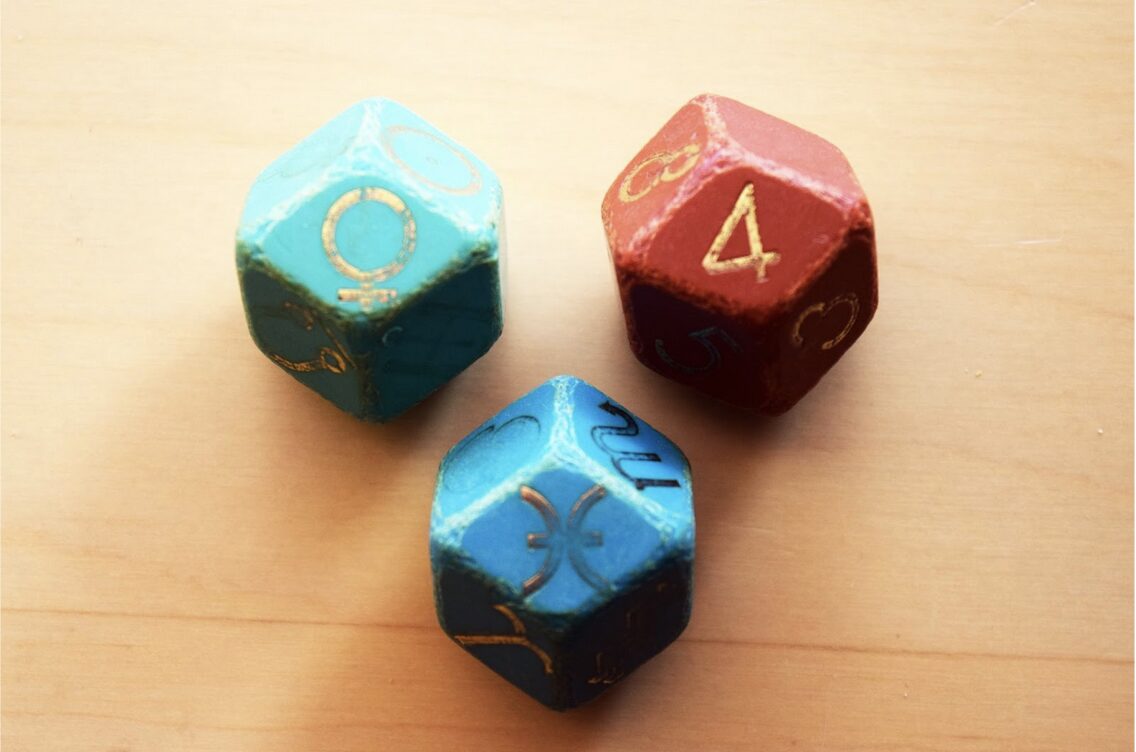

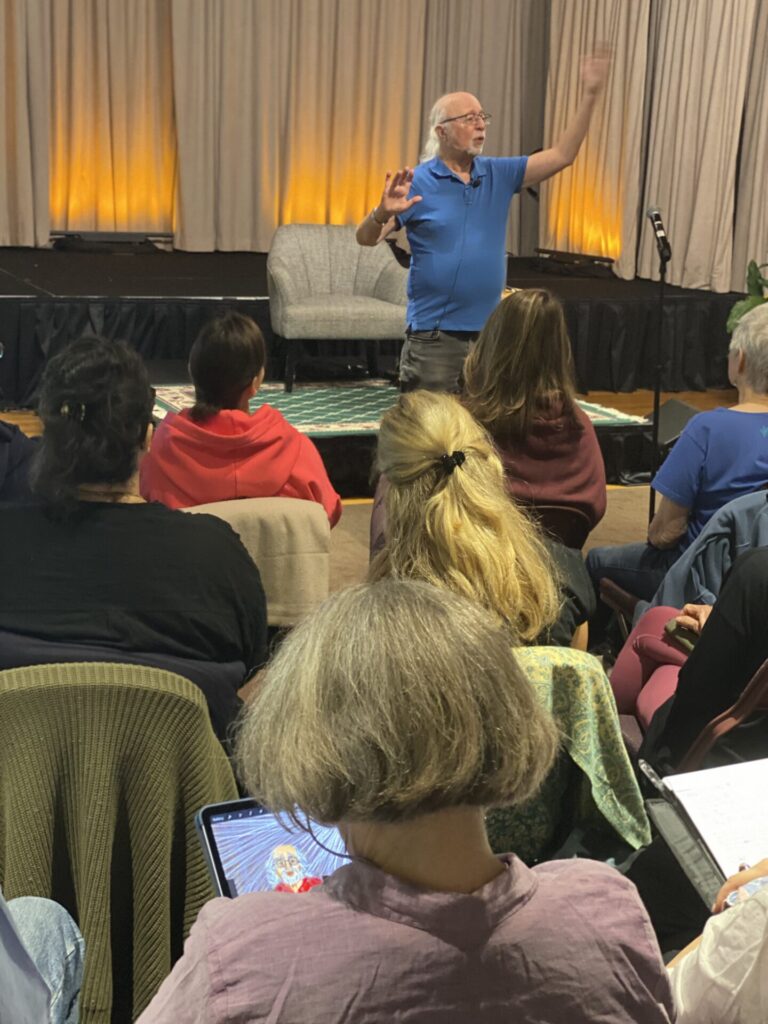

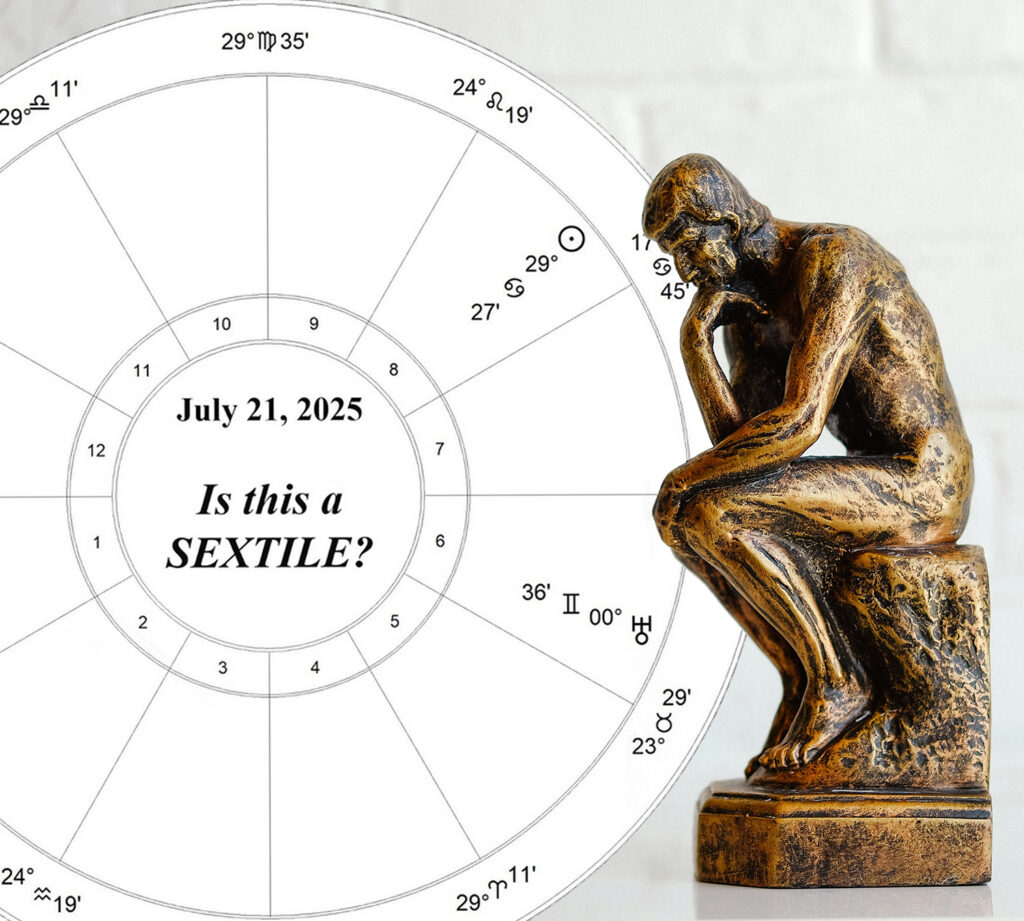
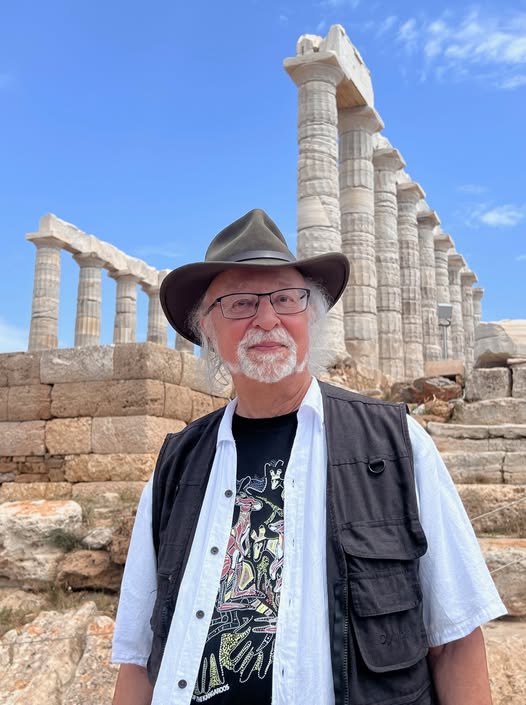
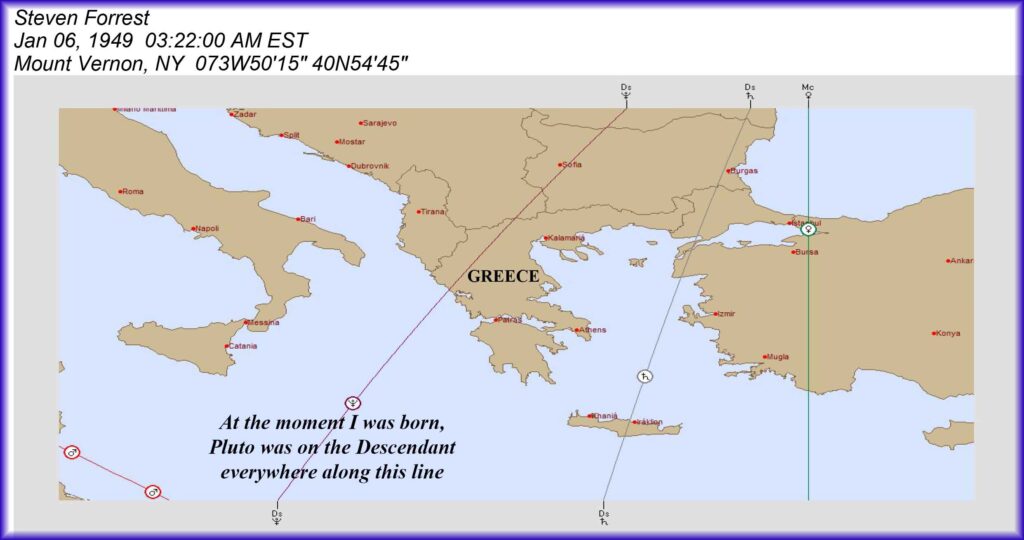



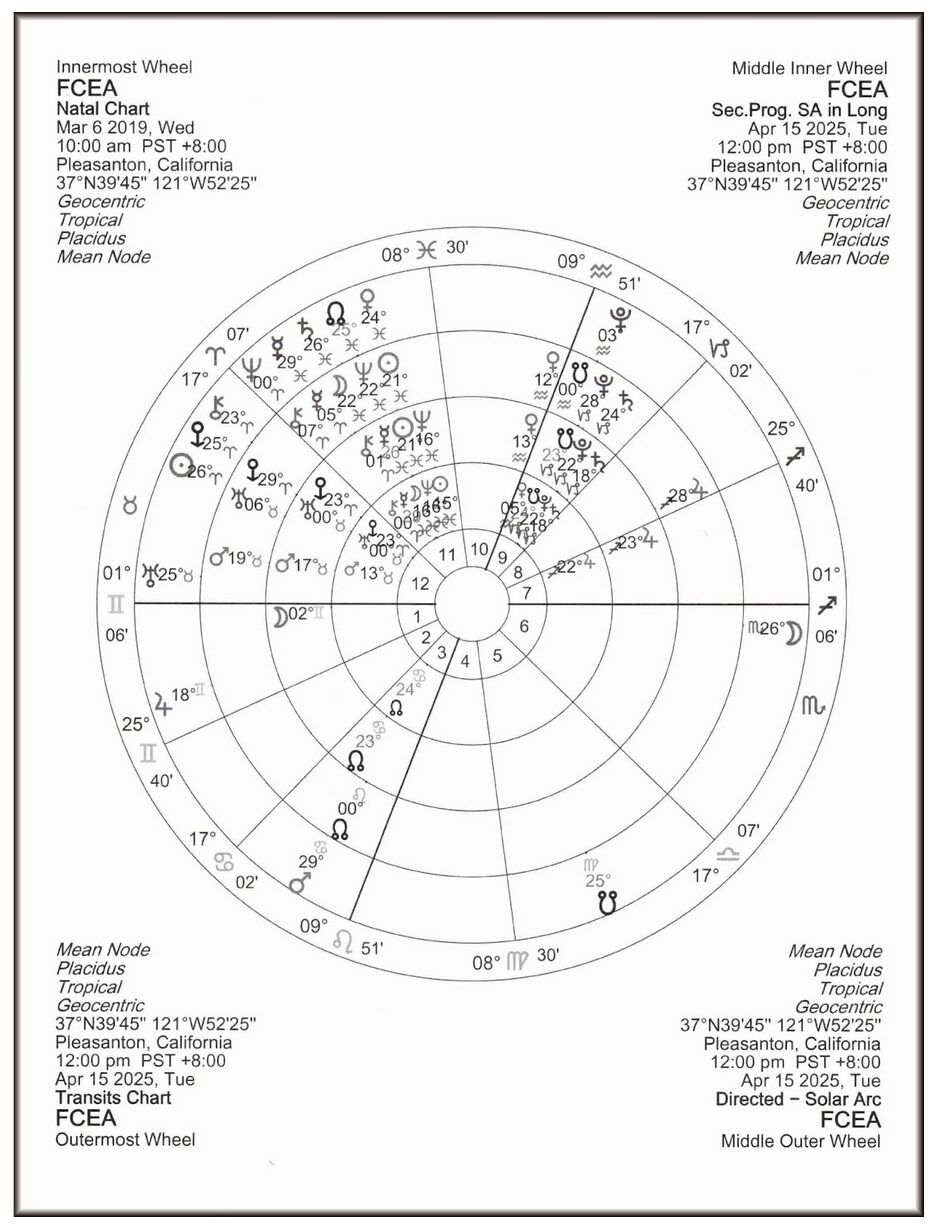
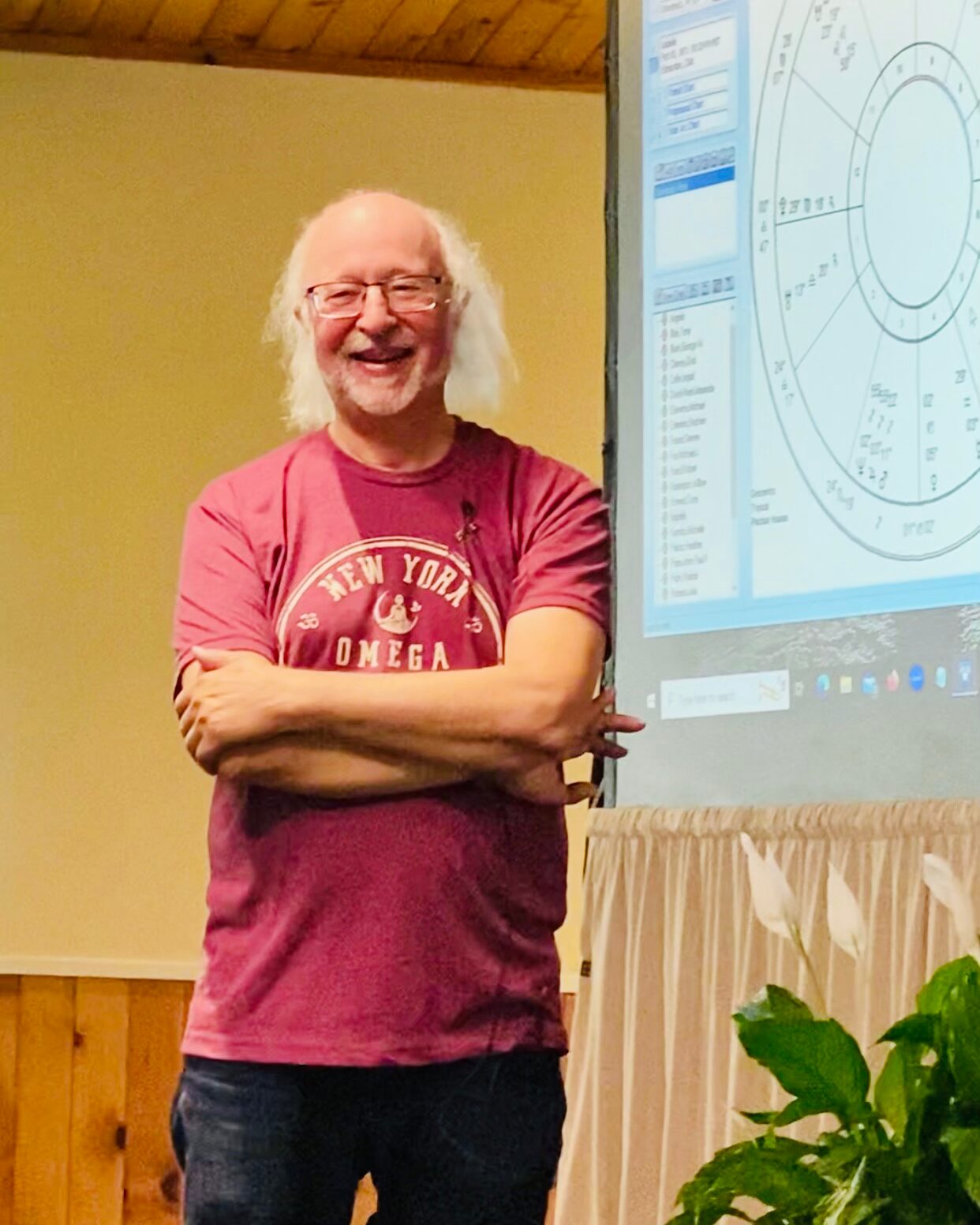
 This will be part of a weekend event sponsored by Astrology University called “The New Air and Fire Era.” In it, I’ll be offering a webinar about Neptune’s entry into Aries. Here’s my description of the talk:
This will be part of a weekend event sponsored by Astrology University called “The New Air and Fire Era.” In it, I’ll be offering a webinar about Neptune’s entry into Aries. Here’s my description of the talk: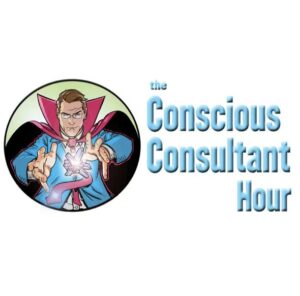
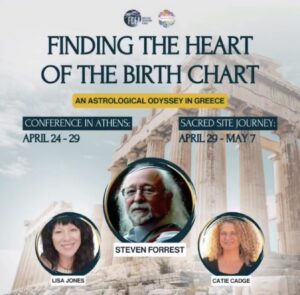
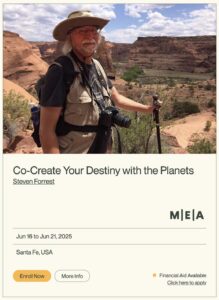 A few lines ago I mentioned my Fireside Chat with Chip Conley. That will be a Zoom event. In June, I’ll physically be returning to his elegant Modern Elder Academy to teach. The campus is set on four square miles of magical land south of Santa Fe. Last year we had a wonderfully warm and friendly group of about twenty-five people. Some were experienced with astrology and some were not, but they all “got it” quickly. This year, I plan to talk about the current sign changes of Uranus, Neptune, and Pluto, and how each of us can best work with these fresh new energies at a personal level. For details, here’s the link:
A few lines ago I mentioned my Fireside Chat with Chip Conley. That will be a Zoom event. In June, I’ll physically be returning to his elegant Modern Elder Academy to teach. The campus is set on four square miles of magical land south of Santa Fe. Last year we had a wonderfully warm and friendly group of about twenty-five people. Some were experienced with astrology and some were not, but they all “got it” quickly. This year, I plan to talk about the current sign changes of Uranus, Neptune, and Pluto, and how each of us can best work with these fresh new energies at a personal level. For details, here’s the link: 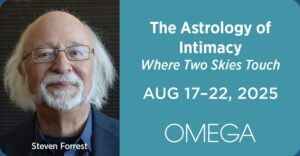
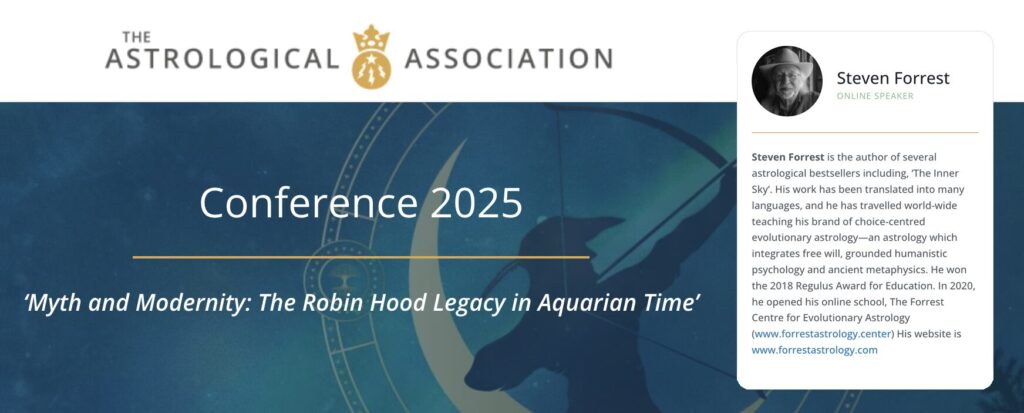

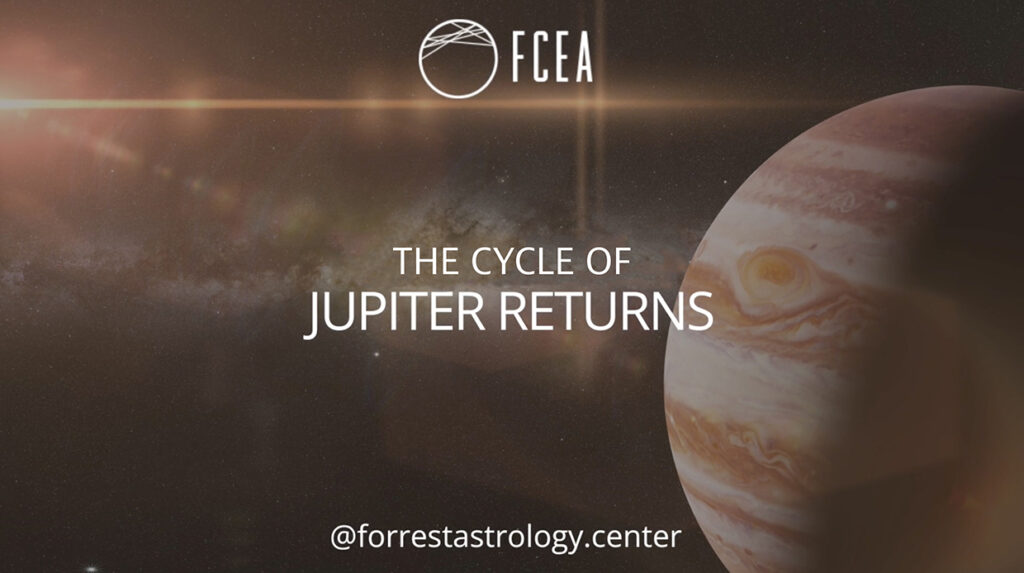

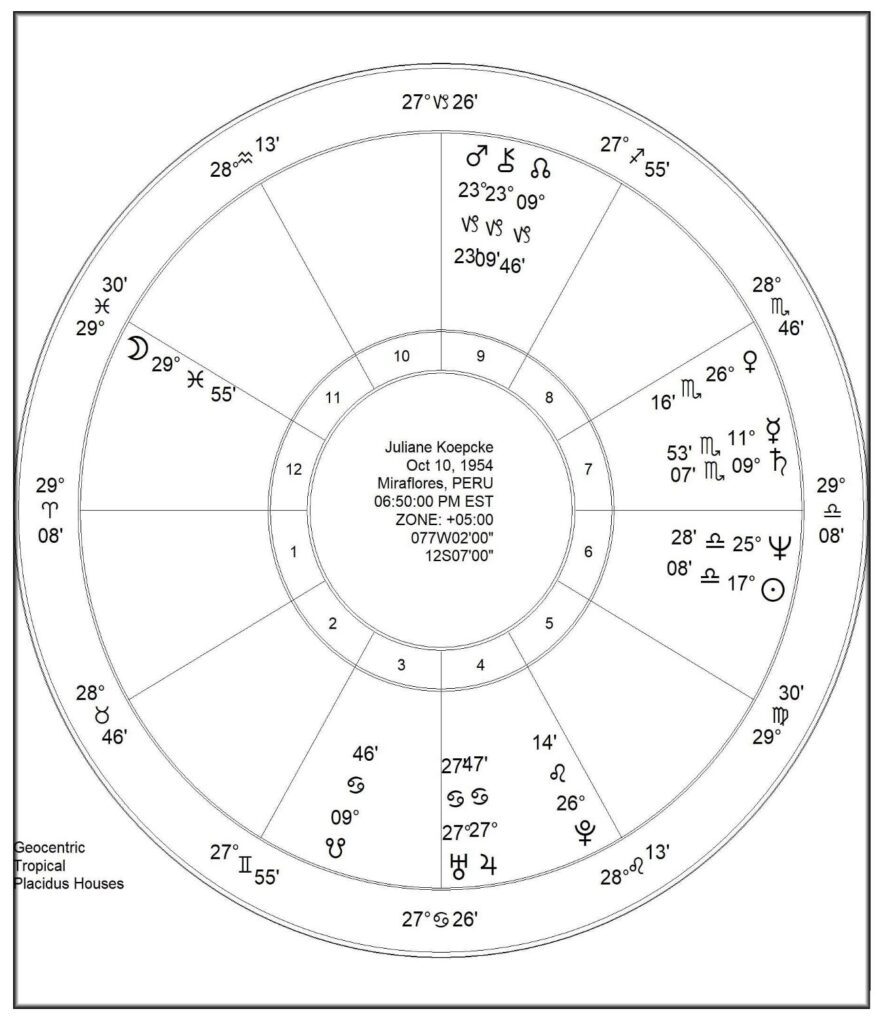
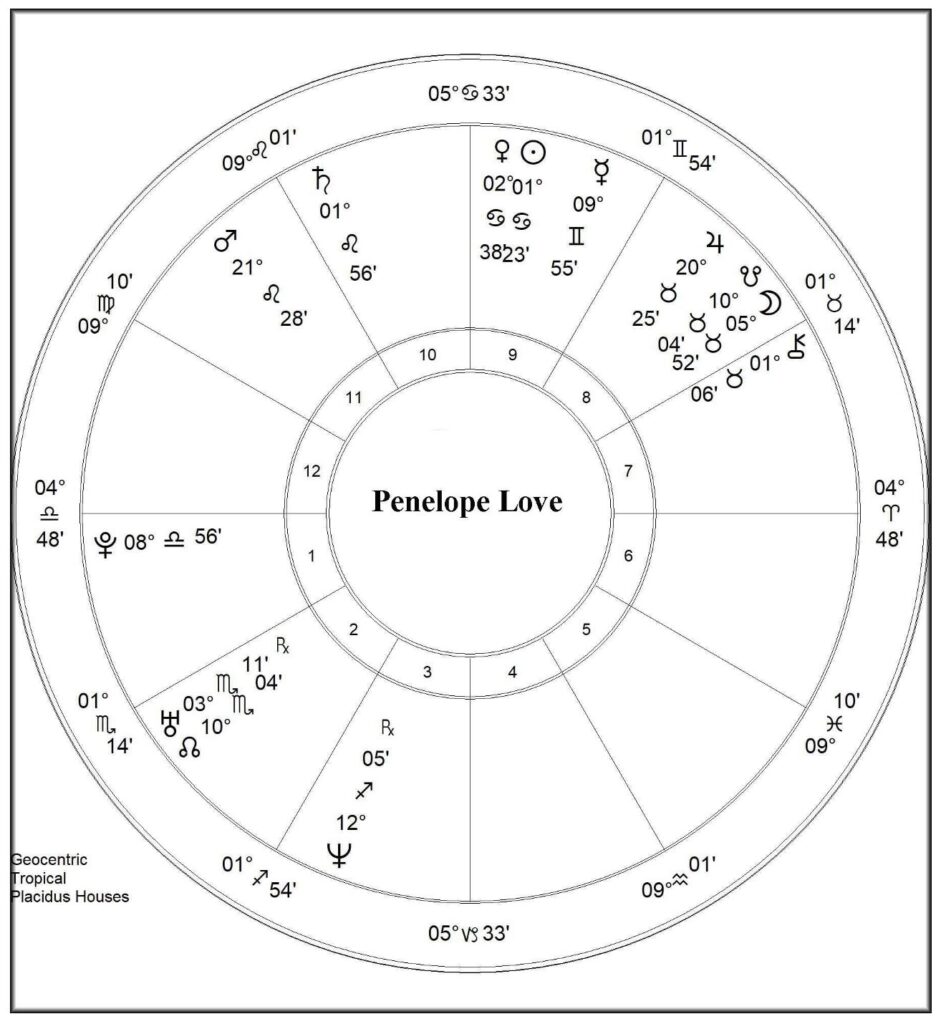

 For each planet, we can create similar “on-ramps.” In each case, there are many possibilities. In a moment, I’ll make a suggestion for each one of them – but, remember, these are just suggestions. You can certainly come up with others and I encourage you to do that.
For each planet, we can create similar “on-ramps.” In each case, there are many possibilities. In a moment, I’ll make a suggestion for each one of them – but, remember, these are just suggestions. You can certainly come up with others and I encourage you to do that.